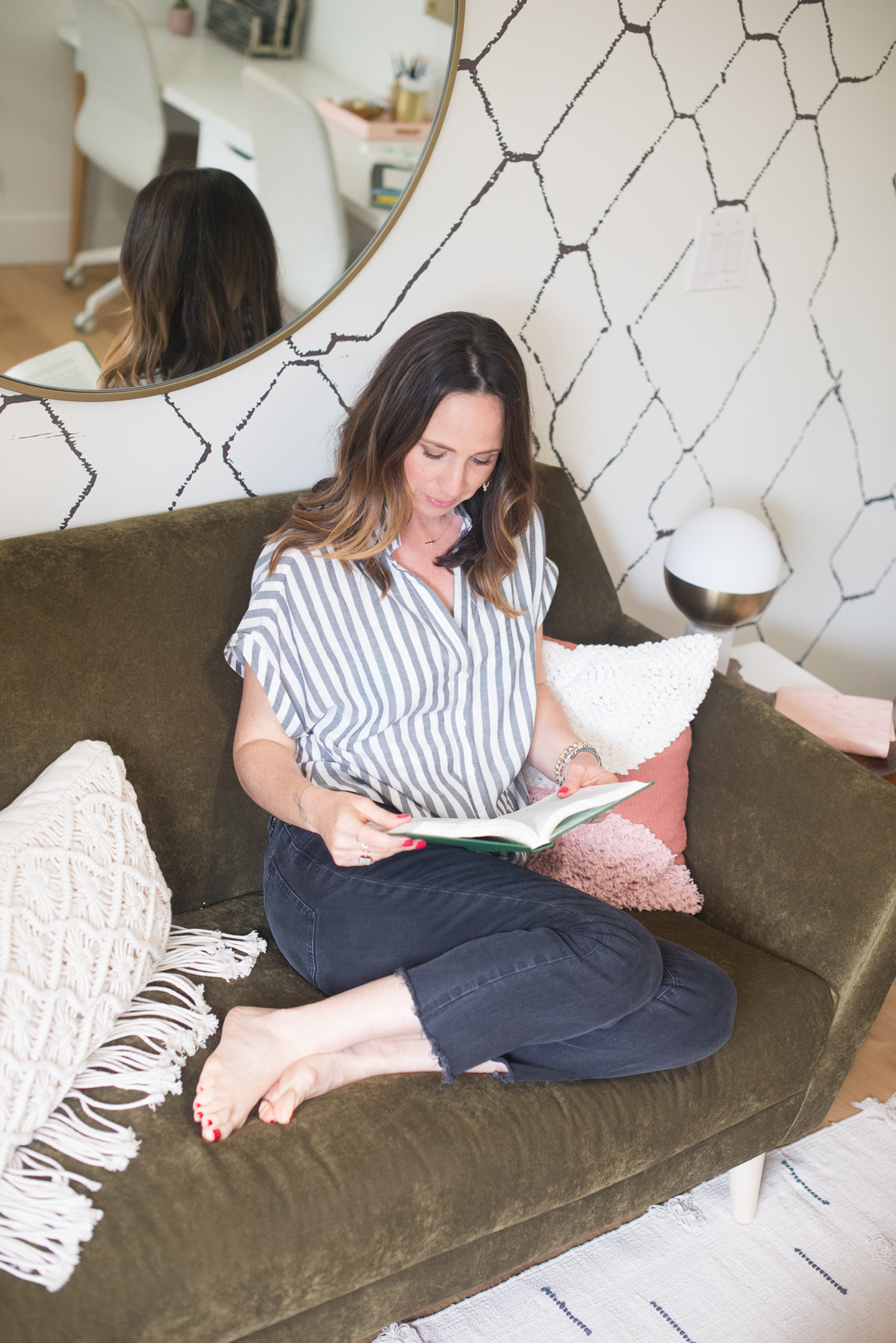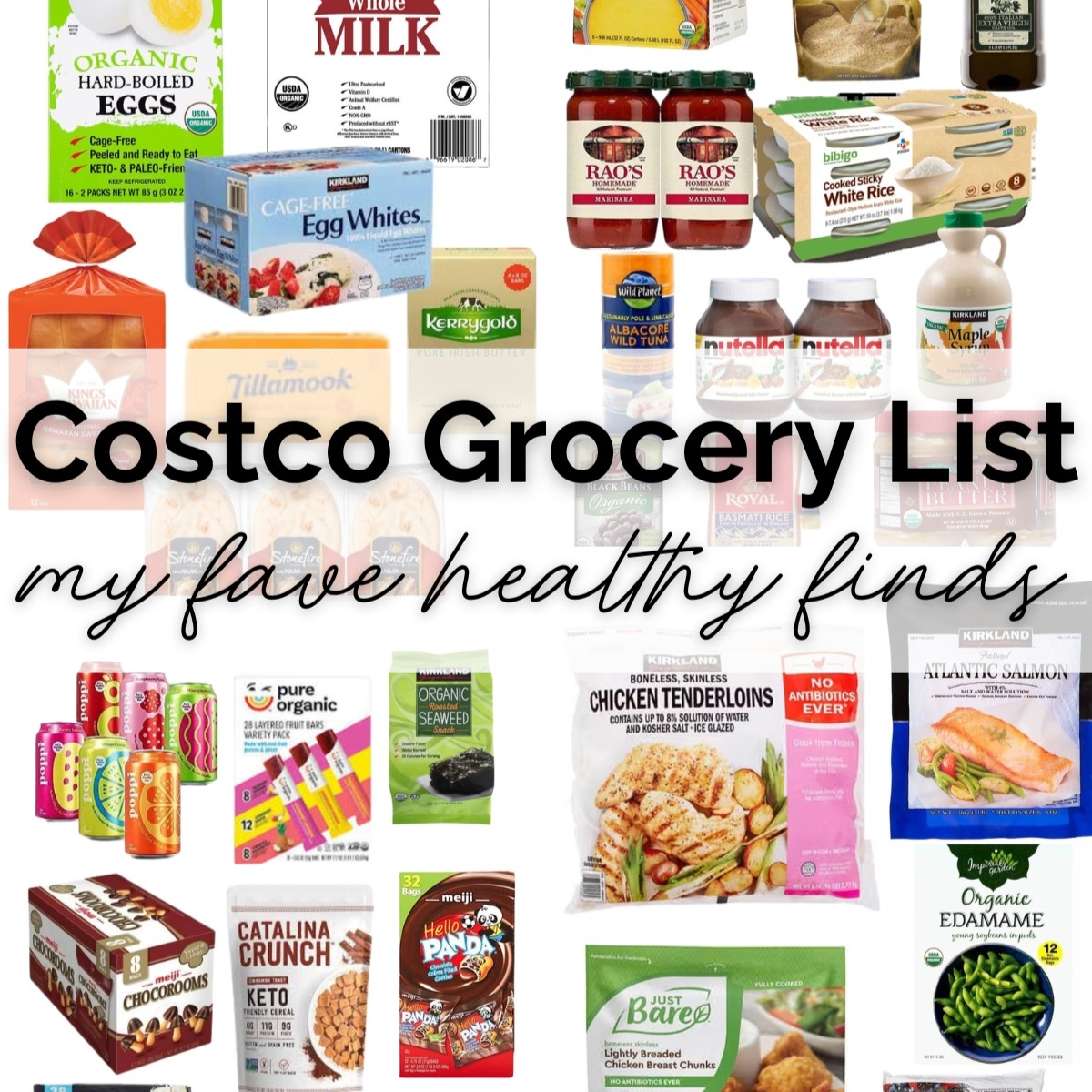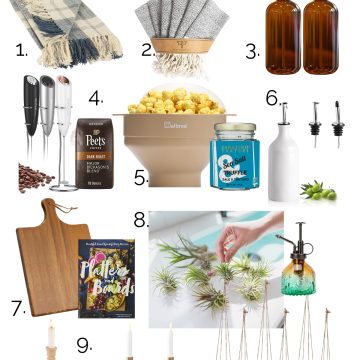It’s been awhile since I updated you all on what I’ve been reading, so I thought I’d check in and jot down some reviews while they were still somewhat fresh in my mind. I’ve been trying to diversify my readings a bit more this year, and you’ll see below there’s a little bit of everything. I try to be as thorough as possible when writing my reviews, but I know this post is long, so if you want just a quick list of what I’d recommend you pick up next and what to avoid, I’d say immediately read Everybody Always by Bob Goff, and skip How to Hug a Porcupine by Julie A. Ross. If you want more detailed reviews of everything, keep on reading! 🙂
Food
Glow 15: A Science Based Plan to Lose Weight, Revitalize Your Skin and Invigorate Your Life by Naomi Whittel my rating ⅗: “Based on the breakthrough Nobel Prize-winning science of autophagy—the process by which cells remove toxins, recycle parts, and repair their own damage—Glow15 is a lifestyle plan that will make you look and feel younger. In just 15 days, you’ll begin to harness the power of autophagy to drop pounds, get glowing skin, and restore your energy.”
I received this book for free when I attended a talk Naomi was giving at Expo West and I thought her approach was interesting. It definitely didn’t hurt that she has amazing skin and so I was interested in hearing her secrets. Overall I was disappointed and found the advice and 2 week diet plan restrictive, impractical and unsustainable. There were some good tidbits throughout, like her recipe for “Autophatea” which is yummy and serves as a good pick-me-up alternative to coffee, and she had some intriguing info about supplements. Her egg cup recipes are great, but nothing revolutionary you couldn’t find somewhere else. Overall, I wouldn’t recommend this book to anyone interested in long term lifestyle changes that you can enact and maintain for the long haul.
Omnivore’s Dilemma: A Natural History of Four Meals by Michael Pollan my rating 3.5/5 stars: “What should we have for dinner? Ten years ago, Michael Pollan confronted us with this seemingly simple question and, with The Omnivore’s Dilemma, his brilliant and eye-opening exploration of our food choices, demonstrated that how we answer it today may determine not only our health but our survival as a species.”
Okay, so I have read a lot of books about food and our industrial food system, and I give credit to Pollan in that this was impeccably researched and balanced. It was more even handed, honest and generous than Foer’s Eating Animals, but not as practical or delightful to read as Animal, Vegetable, Miracle. Overall, if you want to learn about our food system, this is a great book that you can count on as being thorough and well researched, however he may lose you in his overly done writing style and philosophical ramblings. His chapter on foraging for mushrooms was a snooze fest I had to force myself to get through, and his chicken processing tales sounded dramatic to the point of ridiculous and I’m sure Joel Salatin probably gave a good chuckle while reading. And speaking of Joel, I could suggest reading it just to learn about his inspiring work and farm I hope to one day visit.
Parenting
How To Hug A Porcupine: Negotiating the Prickly Points of the Tween Years by Julie A. Ross my review ⅖: Oh boy this book started off strong and did a great job affirming that what we are going through with our tween kids is totally normal, and what they’re going through is totally normal too! It made me more sympathetic to the whole situation and reassured me that things would get better, and I wasn’t a terrible parent because my tween is like Dr. Jekyll and Mr. Hyde most days. But then it took a sharp nose dive. The methods she suggests of how to talk to our tweens were so exact and measured they felt impossible to actually put into practice on a regular basis. She uses the example of a layered sandwich to instruct parents on the “parts” of speech that should go into these interactions. It was a lot of “use this type of phrase, not that type of phrase, then follow it up with this kind of statement, not that kind of statement, and then end it by saying this, not saying this.” Holy crap, I just want to talk to my kid! I mean, I get the overall gist of what she was saying, which is to basically listen more, don’t jump down their throats, don’t put them down, etc. It all makes sense, she just laid it out in such a complicated way I felt I could never keep track of it all.
Then she got into the sex stuff and I just about lost it. She gave examples of talking openly about condoms and dental dams with our 7th and 8th graders?!? Even if you’re not at all religious, I see no reason why we should be proactively bringing these things up with our middle schoolers. Of course, if they ask, we need to confront the issue and talk about it. But to act like showing our kid how to put a condom on a banana was no big deal, and explaining how dental dams can prevent the transmission of STD’s when you perform oral sex on a girl?!? Hmmm. I ended up being really disappointed in this book and feel bad I actually highlighted it on my stories before I had even read it through. Even the author didn’t seem to be able to explain how talking to our kids in such a frank and extensive matter about sex. In a section titled “educating or condoning” she confronts these concerns, but doesn’t give a viable answer. “Many parents worry that teaching our children so frankly about safe sex is equivalent to condoning our children’s having sex. In counterpoint, research shows that educating our children about sex is the single biggest deterrant to pregnancy and STD’s.”
Yes, teaching kids about sex will help prevent STD’s and pregnancy, but they’re still having sex. Teaching them about it doesn’t stop them having sex. How does her counterpoint address the actual concern that talking openly is akin to condoning? What I wish she would have covered was that sex that sex is more than just transactional in nature, and that complexities go far beyond sexual pleasure, safety and pregnancy prevention. The book didn’t consider this point of view, and was rather dismissive of it at all, drilling it down to just covering these topics for the sake of STD and pregnancy prevention. Our conversations surrounding the weight of sexual interaction at such a young age I believe, should go way beyond these logistics.
All in all, be a kind and loving parent, don’t put your kids down, love and accept them and talk openly to them, and know that you’ll make it through haha. I’ll keep you updated if I find a better tween parenting book, because this one was a bust.
Simplicity Parenting: Using the Extraordinary Power of Less to Raise Calmer, Happier and More Secure Kids by Kim John Payne & Lisa M. Ross my review 4.5/5: “Today’s busier, faster society is waging an undeclared war on childhood. With too much stuff, too many choices, and too little time, children can become anxious, have trouble with friends and school, or even be diagnosed with behavioral problems. Now internationally renowned family consultant Kim John Payne helps parents reclaim for their children the space and freedom that all kids need for their attention to deepen and their individuality to flourish. Simplicity Parenting offers inspiration, ideas, and a blueprint for change.”
I really enjoyed this thoughtfully written book and found many of the ideas practical and easy to enact. I think it’s most helpful for parents of younger children and would really recommend it or that demo so that you can start off this way instead of trying to reverse courses once you’re 13 years into your parenting journey 😉 Luckily many of the principles and advice he shared was not new from me since we had the 2 older kids in a similar type of preschool, but still I gained some more insights that I hadn’t considered before. I loved his suggestion for meal planning and have since enacted it in our house, and it has made everyone’s life a lot easier and more predictable.
Theology/Religion
Women of the Word: How to Study the Bible With Both Our Hearts and Our Minds by Jen Wilkin my rating ⅘: “We all know it’s important to study God’s Word. But sometimes it’s hard to know where to start. What’s more, a lack of time, emotionally driven approaches, and past frustrations can erode our resolve to keep growing in our knowledge of Scripture. How can we, as Christian women, keep our focus and sustain our passion when reading the Bible?Offering a clear and concise plan to help women go deeper in their study of Scripture, this book will equip you to engage God’s Word in a way that trains your mind and transforms your heart.”
Jen does a good job establishing a basis for why we should do more than just read passages of the Bible that make us feel good or study books instead of the entire story, and she offers a lot of practical advice for diving in deeper into the word. Her way of studying books personally felt a little overwhelming and unattainable for this season of life, but I could see the benefit of her deep dive methods and would love to try and put it into practice when I have a bit more time to study the Bible, beyond the 20-30 minutes I typically allow each morning.
Everybody Always: Becoming Love In a World of Full of Setbacks and Difficult People by Bob Goff my rating 5/5: “Driven by Bob’s trademark storytelling, Everybody, Always reveals the lessons Bob learned–often the hard way–about what it means to love without inhibition, insecurity, or restriction. From finding the right friends to discovering the upside of failure, Everybody, points the way to embodying love by doing the unexpected, the intimidating, the seemingly impossible. Whether losing his shoes while skydiving solo or befriending a Ugandan witch doctor, Bob steps into life with a no-limits embrace of others that is as infectious as it is extraordinarily ordinary. Everybody, Always reveals how we can do the same.”
Oh my gosh I LOVED this book so much, I purchased the Audible version, then proceeded to immediately pick up the hardcover as well, so I could have it in my library and go back and read it when I need to remember to love everyone, even the difficult people God puts in our paths. In fact I loved this book so much I plan to write another follow up post about it because it resonated with so many of my own thoughts in the past year I’ve been on my walk with Christ, so stay tuned for a follow up post. Heads up though, Bob is an enthusiastic Christian who weaves his storytelling throughout with lots of examples of how Jesus loved without restraints. While he talks about Jesus a lot, I wouldn’t say this is a deeply theological book though, because he does it in a way that is more story-telling and relates it back to life and how the world would overall be a better place if we all acted like Jesus a little bit more (whether you follow him or not). Also important to note that Bob’s life has been extraordinary and he has done some truly incredibly inspiring things with his life. The thumbprints on the book cover are actually those of witch doctors who have been reeducated in his school for witch doctors. Sounds crazy, I know, but just read the book to learn about this wild story.
Business/Self-Improvement
How to Break Up With Your Phone: The 30 Day Plan to Take Back Your Life by Catherine Price my rating 4.5/5: “Is your phone the first thing you reach for in the morning and the last thing you touch before bed? Do you frequently pick it up “just to check,” only to look up forty-five minutes later wondering where the time has gone? Do you say you want to spend less time on your phone—but have no idea how to do so without giving it up completely? If so, this book is your solution.”
I’ve already written extensively about this books, so you can read about the start of the challenge, the midway point, and how it ended.
Essentialism: The Disciplined Pursuit of Less by Greg McKeown my rating 3.5/5: “The Way of the Essentialist isn’t about getting more done in less time. It’s about getting only the right things done. It is not a time management strategy, or a productivity technique. It is a systematic discipline for discerning what is absolutely essential, then eliminating everything that is not, so we can make the highest possible contribution towards the things that really matter.”
So I liked some things about this book, and I didn’t like some things. First, the overall message is good; that we need to be in charge of our own schedules or else other people will. We need thoughtfully consider what we say yes to, and say no more often. There were some good examples of how to put this thought process into practice, but many of them were for people in the corporate world, and most likely managerial roles and above. The thing I didn’t like about the book is that it’s really directed towards a niche group of people who have the flexibility to decide to quit their job and pursue their passion. Who can say no to a meeting and not risk being fired and can say no to amazing opportunities that the average person would kill for. I hate using this word, but it felt kind of elitist. Overall, a lot of the advice he gives are nuggets I’ve heard before on podcasts and read on blogs. Nothing ground breaking. My biggest takeaway in fact was a tiny little 1 page section where he instructs readers to figure out what is most important right now. As a busy, work from home mom, this was the best piece of advice and exactly what I need to remind myself of each day.
Nonfiction
The Guernsey Literary & Potato Peel Pie Society by Mary Ann Shaffer & Annie Barrows my rating ⅘: “As Juliet and her new correspondent exchange letters, Juliet is drawn into the world of this man and his friends—and what a wonderfully eccentric world it is. The Guernsey Literary and Potato Peel Pie Society—born as a spur-of-the-moment alibi when its members were discovered breaking curfew by the Germans occupying their island—boasts a charming, funny, deeply human cast of characters, from pig farmers to phrenologists, literature lovers all.”
This book truly lived up to the hype and I enjoyed it the whole way through. The trickiest part is getting used to the format, as it’s written through correspondence with various characters, so it took me a good 30-40 pages or so to catch on with who was who. But other than that, definitely a fun page-turner. I did find myself wondering about the actions of some of the Nazis on the island, as there were some characters they worked to endear us to through kind actions which seemed out of line. But in a way All the Light We Cannot See did the same thing and I didn’t have a problem with it. Perhaps it just felt a little rushed for me, the way they threw in heartwarming tidbits about a couple of the Nazi soldiers on the island. Overall a good mix of uplifting moments, drama and sadness to make an overall enjoyable read.
Year of Wonders by Geraldine Brooks my rating ⅗: “When an infected bolt of cloth carries plague from London to an isolated village, a housemaid named Anna Frith emerges as an unlikely heroine and healer. Through Anna’s eyes we follow the story of the fateful year of 1666, as she and her fellow villagers confront the spread of disease and superstition.”
I loved this historical fiction book so very much, however the last chapter and ending was a total disappointment. As other reviewers noted, it very quickly turned into a “bodice ripper” that was not at all in keeping with the development of the characters throughout the book. As I was reading the final chapter, I actually thought over and over, “she expects us to believe that all of a sudden these characters are behaving this way?!” Overall I thought it was an interesting book and despite the depressing subject matter, I did enjoy feeling like I was learning a bit about what it was like to live through the plague. Perhaps read until the final chapter and make up your own ending 😉







Leave a Comment